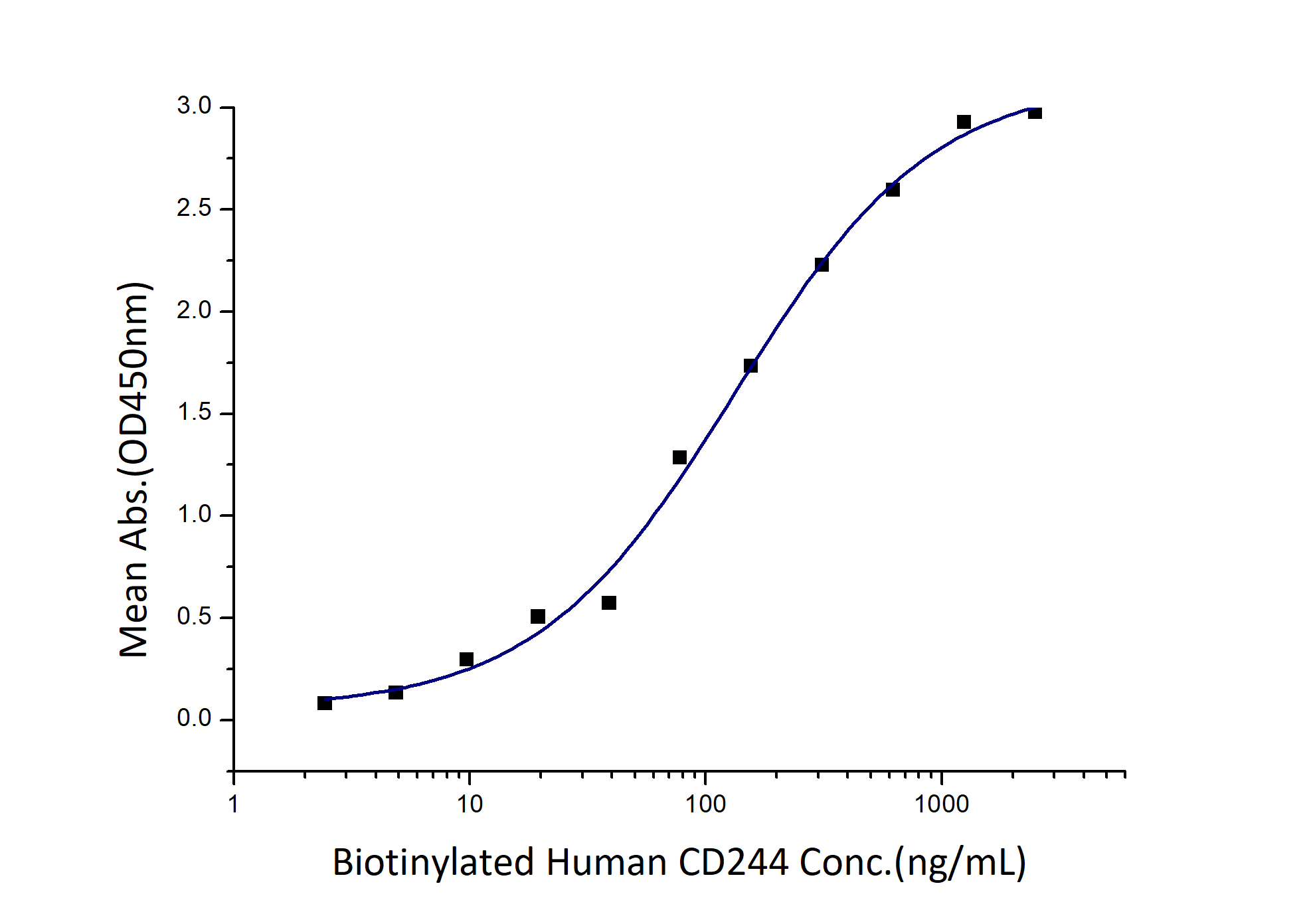Recombinant Human CD48 protein (Myc Tag, His Tag)
ED50
66-264 ng/mL
Species
Human
Purity
>90 %, SDS-PAGE
GeneID
962
Accession
P09326
验证数据展示
Technical Specifications
| Purity | >90 %, SDS-PAGE |
| Endotoxin Level | <1.0 EU/μg protein, LAL method |
| Biological Activity |
Immobilized Human CD48 (Myc tag, His tag) at 2 μg/mL (100 μL/well) can bind Biotinylated Human CD244 (hFc tag, Myc tag, His tag) with a linear range of 66-264 ng/mL. |
| Source | HEK293-derived Human CD48 protein Gln27-Ser220 (Accession# P09326) with a Myc tag and a His tag at the C-terminus. |
| Predicted Molecular Mass | 24.8 kDa |
| SDS-PAGE | 38-50 kDa, reducing (R) conditions |
| Formulation | Lyophilized from sterile PBS, pH 7.4. Normally 5% trehalose and 5% mannitol are added as protectants before lyophilization. |
| Reconstitution | Briefly centrifuge the tube before opening. Reconstitute at 0.1-0.5 mg/mL in sterile water. |
| Storage |
It is recommended that the protein be aliquoted for optimal storage. Avoid repeated freeze-thaw cycles.
|
| Shipping | The product is shipped at ambient temperature. Upon receipt, store it immediately at the recommended temperature. |
Background
Signaling lymphocytic activation molecule family 2 (SLAMF2, CD48) is an adhesion and costimulatory molecule expressed constitutively on most hematopoietic cells, particularly in antigen presenting cells (APC). CD48 is expressed on all the hematopoietic cells, both in human and mice, except for murine neutrophils and long term-HSC. as a number of GpI receptors do, also CD48 exists as both a membrane bound (mCD48) and a soluble (sCD48) form. CD48 can have activating roles on T cells, antigen presenting cells and granulocytes, by binding to CD2 or bacterial FimH, and through cell intrinsic effects. Interactions between CD48 and its high affinity ligand CD244 are more complex, with both stimulatory and inhibitory outcomes. CD48 expression is increased in autoimmunity and allergy diseases, and anti-CD48 monoclonal antibodies have been shown to attenuate experimental autoimmune encephalomyelitis.
References:
1.Cunyi Zou. et al. (2019). Onco Targets Ther. 12:4181-4193. 2.Shannon L McArdel. et al. (2016). Clin Immunol. 164:10-20. 3.Hadas Pahima. et al. (2019). Clin Immunol. 204:64-68. 4.Shannon L McArdel. et al. (2016). J Immunol. 197(8):3038-3048.

